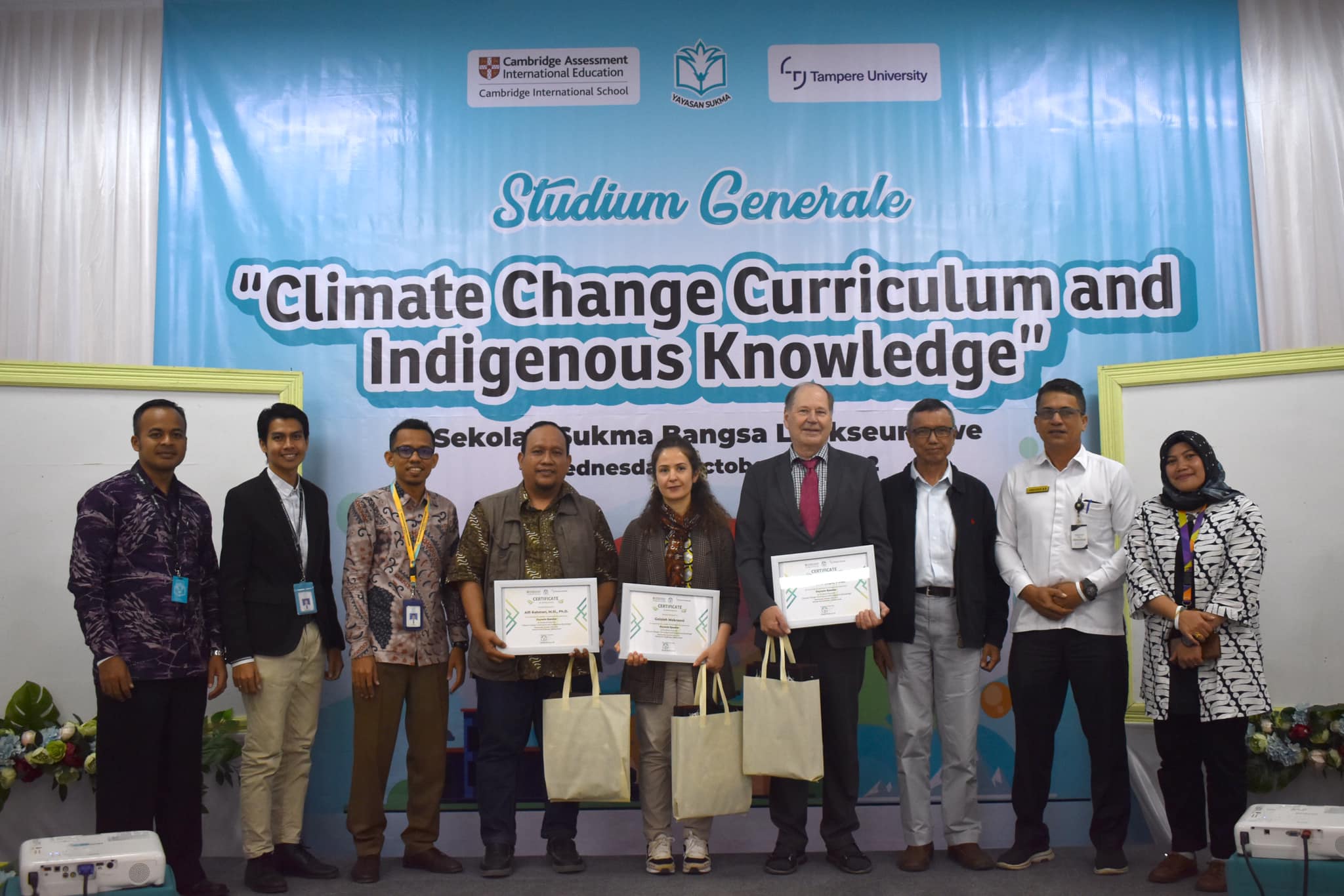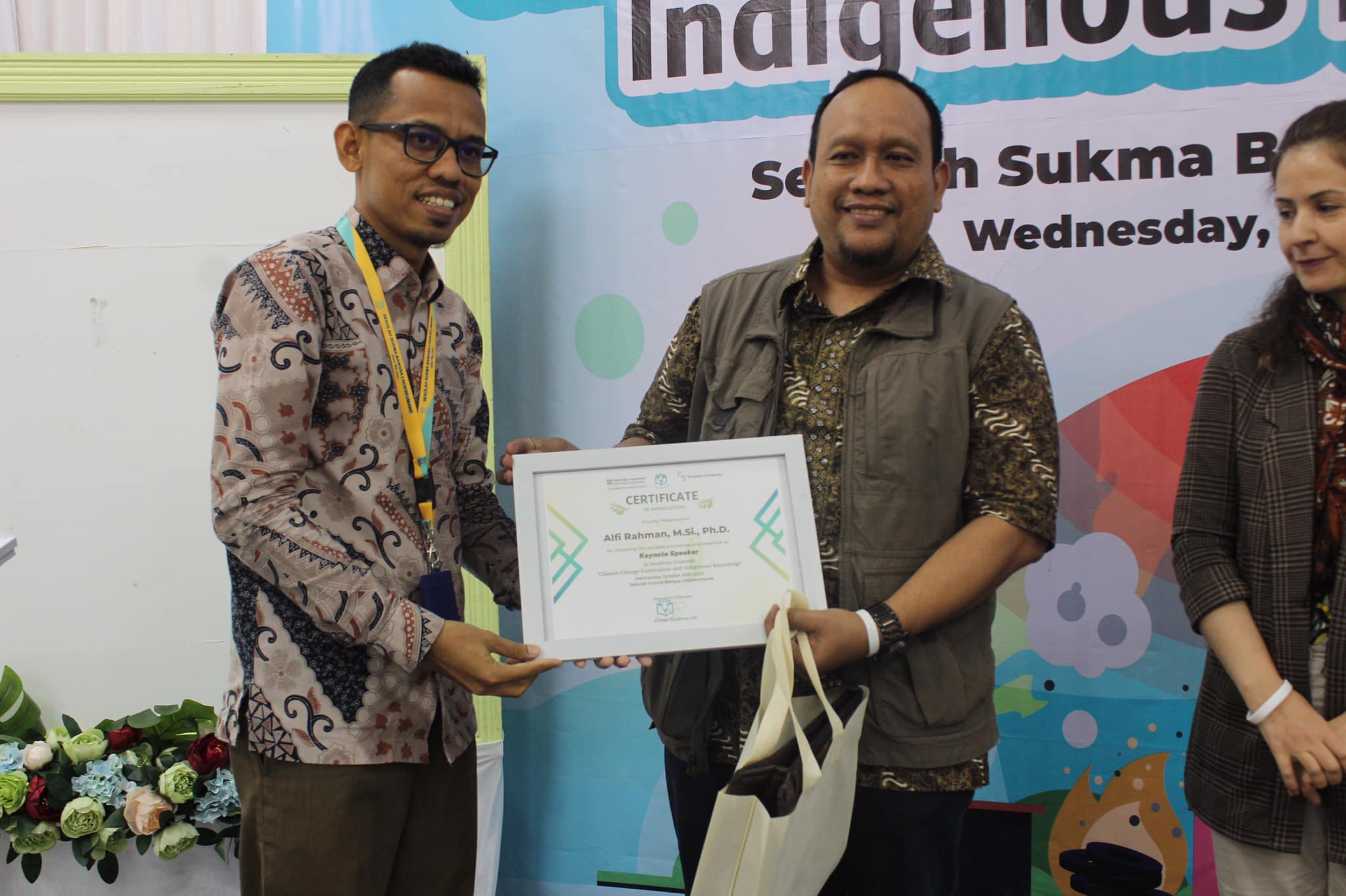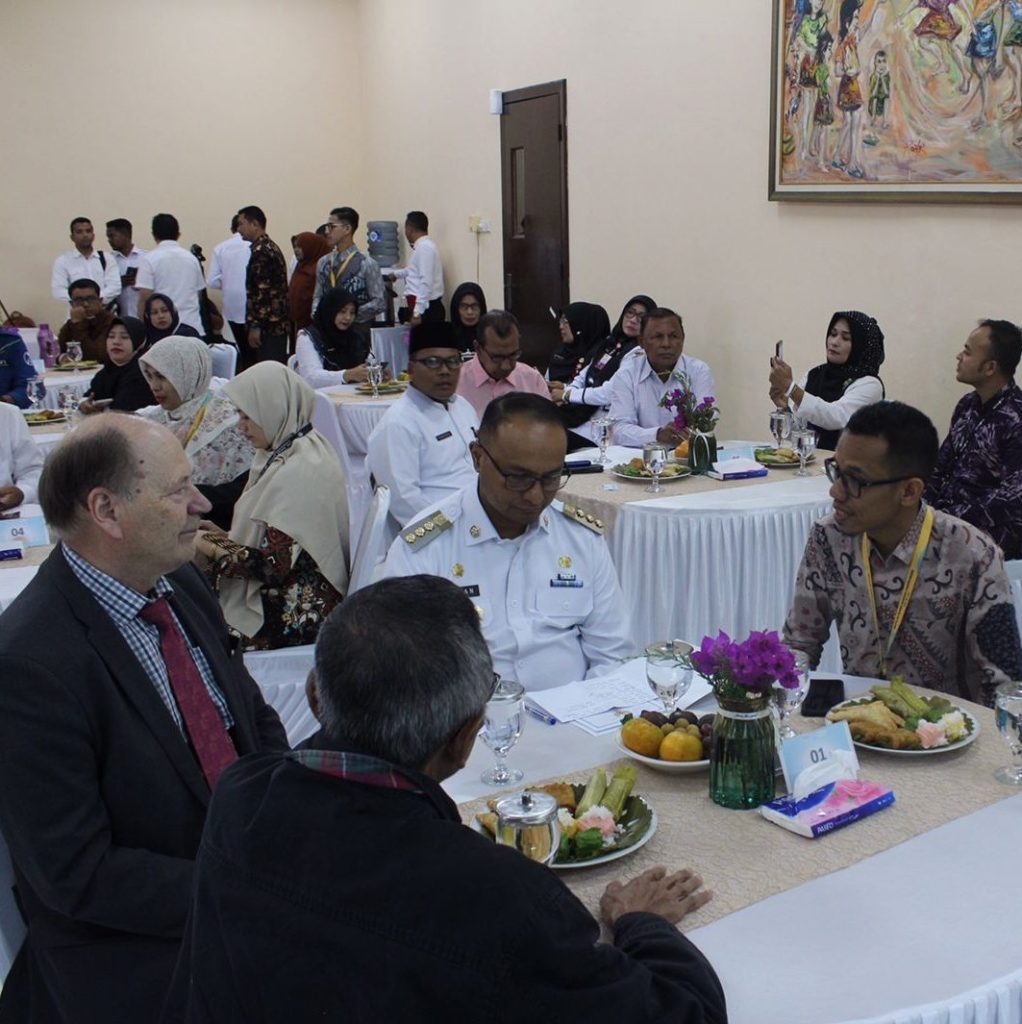
Three Keynote Speakers at Studium Generale, Dr. Alfi Rahman from PRISB USK, Golelah Makrooni, and Prof. Eero Ropo from Tampere University Receive Certificates and Souvenirs from the Committee
Dr. Alfi Rahman, director of the Center for Social and Cultural Studies (PRISB), Universitas Syiah Kuala (USK), was one of the keynote speakers at the studium generale event on Climate Change Curriculum and Indigenous Knowledge on Wednesday (26/1) at Sukma Bangsa School in Lhokseumawe. This is a form of collaboration between the Sukma Foundation, Tampere University and Universitas Syiah Kuala.
The studium generale was presented by speakers from Tampere University, Finland, namely Prof. Eero Ropo and Golaleh Makrooni. The guests were welcomed with the Ranup Lam Puan dance by students from SD Sukma Bangsa Lhokseumawe. The audience then visited the science and chemistry expo showcasing the green school project works created by Sukma Bangsa students. There was also a book expo displaying the works of teachers and students of Sukma Bangsa School. The studium generale was opened by Syamsir Alam, a representative of the Sukma Foundation, who said that the event was funded by Finland Knowledge (TFK).
This event was a response to the previous participation of Syamsir Alam and Sarlivanti from Sukma Bangsa School, who were invited to speak at Tampere University. Acting Mayor of Lhokseumawe, Imran, expressed his desire to create a clean and waste-free city. He also urged the audience to reduce the use of disposable waste. This campaign has already been promoted in educational institutions and will be extended to government agencies, state-owned enterprises, regional-owned enterprises, and the market.
“The first target is schools because they are the centers of shaping, changing, and engineering community behavior. It does not take long to change if there is a strong intention and energy,” said Imran.
The studium generale was led by Siti Hajar and translated by Martunis. The first speaker was Prof. Eero Ropo, who explained that two learning models could be applied to the climate change curriculum, transmission, and transformation. Transmission is transferring knowledge to students. Transformation is changing students’ paradigms and behaviors directly.
“I think this transformation model is the most suitable for the climate change curriculum,” said Eero. In addition, Golaleh, the second speaker, revealed that women often suffer the most from the impact of disasters. This is due to religious norms and cultural traditions —. For example, the flood disaster in Bangladesh in 1991. According to data, 75% of the victims were women.
“There are three steps to address this, namely gender equality, positive action and development for women, and a commitment to avoiding gender bias,” said Golaleh.
Alfi Rahman also explained the impact of climate change and local knowledge of Acehnese communities in particular. Many Acehnese people know local wisdom related to disasters, but it just needs scientific validation that has been researched. For example, if there is a strong earthquake and the sea begins to recede, it means a tsunami is coming. The Simeulue community in Aceh already has local knowledge known as Smong. As a result, only a handful of tsunami victims were affected in Simeulue. (RO/OL-14)
Source: https://youtu.be/jV8dRiMV1oo

Mr. Zubir, the Director of Sukma Bangsa School in Lhokseumawe, has awarded Dr. Alfi Rahman with a certificate of appreciation for his keynote speech at the Studium Generale event.

Participants in the “Climate Change Curriculum and Indigenous Knowledge” Studium Generale activity.

Recent Comments